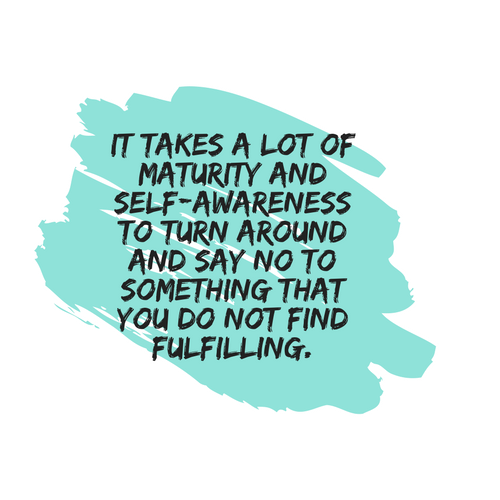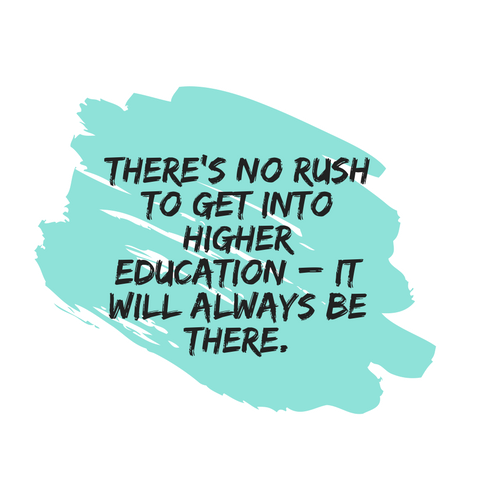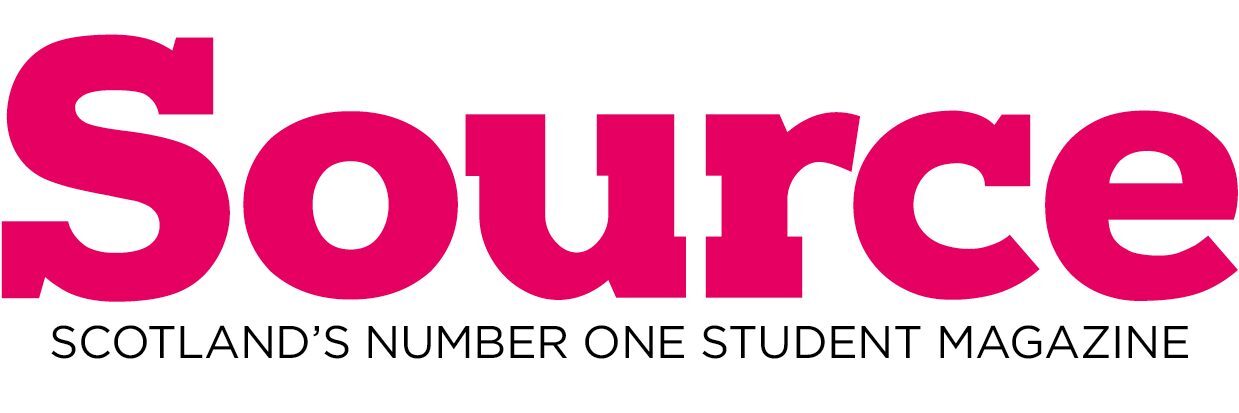
There’s a lot of pressure on young people these days to make perfect life decisions. If you don’t have your whole life figured out at the very tender age of 17 years-old, you start to feel a little panicked. And this panic may lead you to make snap decisions in terms of further or higher education. College student Lauren Brownlie began a course in Administration IT at Glasgow Clyde College, before realising that journalism interested her more and making the switch. She says: “I had no idea what I wanted to do. I just picked what I was best at in school. I didn’t think of the long-term, I just panicked because I didn’t want to leave school and not attend college or uni.”
If you start your first year at university or college and suddenly realise you’ve made a terrible mistake, a million questions go through your head. Should you switch course? Should you drop out?
First of all, you need to ensure that the way you’re feeling is purely attributed to your subject choice.

Signs and symptoms that you’re studying the wrong course:
Feelings of unhappiness
You feel that the work you’re doing is not fulfilling and never will be. It may even go as far as impacting your mental health.
“I realised my BA in Modern Ballet wasn’t for me half way through my second year, when the true brutality and reality of the dance industry hit me like a bullet,” says Emily Munn, who studied a degree at the Royal Conservatoire before changing to Microbiology at the University of Glasgow. “I thought it would be a more durable, rewarding and prosperous career, compared to being a dancer. I also felt as though I wasn’t really helping anyone by being a dancer; I wanted a career where I was improving people’s lives directly.”
Demotivation, sudden disengagement and mental blocks
Particularly if you were a strong student at school, it’s a cause for concern when your grades start slipping because you are either struggling with the course content, or it bores you and does not play to your strengths.
Samantha Carden is now a qualified Biomedical Scientist working in the NHS, however, she started uni on a primary education course at Strathclyde University, before deciding to change to Applied Biomedical Science at Glasgow Caledonian University.
“I did enjoy teaching,” she says. “But the course structure just did nothing to interest me or keep me motivated.”
Looking at other courses or potential jobs.
If you’re already looking at alternatives, that’s your gut trying to tell you something. Maybe you know exactly what you’d rather be studying, but parents, teacher and friends have told you otherwise. Is uni your only option? Would college be a more practical route?
College student, Hannah Gunn, started a university degree in psychology before switching to a HND in journalism at college. She says: “I much prefer college to uni. I enjoy the smaller class sizes and the fact that each lecturer has more time for individual students. My HND can get me into the third year of a degree course, and I think this is a better route for me than to have studied at uni for four years.”
Thinking about a gap year
Maybe you never enjoyed school and now you’re not enjoying uni or college either. Education just might not be for you – right now or ever. And there is nothing wrong with that.
Journalism student Hannah Gunn took a gap year between dropping out of her psychology degree and applying for college. She says: “After trying psychology, I worked for a few years in a job I really didn’t enjoy, so I took a gap year. I also wasn’t very confident, so I chose to go travelling alone to push myself out of my comfort zone and figure out what I wanted to do in life.”

Steps to take if you’re now convinced you’re studying the wrong course:
Don’t panic
The realest bit of advice you need to hear immediately is that this is not the end of the world. There are solutions, there are options, there is a whole world of possibilities out there.
University student Emily Munn confirms there are benefits to rethinking your life plan. She says: “I believe that by changing from ballet to microbiology, I have been able to widen my horizons, whilst also broadening my life experiences, skills and views.”
Don’t hold yourself to unrealistic standards – if you are struggling to enjoy your course or do the work, it’s only natural to start reconsidering your options. You won’t be letting anybody down and you won’t be holding yourself back. If you need to switch course or leave uni altogether, all you’re really doing is giving yourself a better chance at happiness. It takes a lot of maturity and self-awareness to turn around and say no to something that you do not find fulfilling.
Journalism student Hannah Gunn admits: “I can now see myself as a journalist, whereas I couldn’t see myself as a psychologist or a social worker at all.”

Give it more than a few weeks – wait until the Christmas break
University is a shock to the system. You could just be overwhelmed by the newness of the experience and not the experience itself. It may be an idea to stick it out until Christmas, at least, and make a decision during some festive down-time. Biomedical scientist Samantha Carden says she never enjoyed her primary education course, but gave it a good chanced by sticking it out until the end of first year.
She says: “After I realised it wasn’t for me, I started emailing other universities and applying to different courses over the summer that I found more interesting. Thankfully, it worked out for me and I love my job now. But I wish I had spent some time trying to figure out what I wanted to do with my life.”
Do your research. Find out the alternatives, consider funding arrangements and understand the repercussions. You don’t want to make the same mistake twice, or just drop out because you were in another moment of panic.

Speak to lecturers, family members, other students and careers advisors
It’s vital that you get the well-versed opinions of those older than you, those who know you very well, and others who don’t know you at all.
Can how your situation be resolved any other way? Is it your living environment that’s stressing you out? Could you use some extra support, either academically or personally? Do you need more information regarding the job prospects at the end of your course? Or maybe you just need some more time and space to figure your life out? Whatever it may be, speak to people. Do not try to make this decision alone. Someone else may be able offer you the perfect solution, and it may well be something you would never have thought of alone.
Journalism student Lauren Brownlie advises: “Don’t choose a course that you are unsure of. Be certain of what you want instead of wasting more time and course fees on skills and knowledge that you will never use. There’s no rush to get into higher education – it will always be there.”
Check your university or college website, as well. Switching course or dropping out is far more common than you’d think. Often, there are guides in place such as this one from Glasgow University, or this one from Glasgow Caledonian University.

Consider all the advice you’ve been given, but ultimately listen to your gut
Everyone will tell you how they think you should be living your life, but ultimately you know your strengths and desires better than anyone else. If you’re studying a subject purely to please your parents or impress friends, you’re studying for all the wrong reasons.
Ex-student Samantha Carden has a nugget of wisdom to offer after graduating from a different course than the one she started on. She says: “If you are not happy and have given it a proper chance, leave. You’ll make yourself miserable if you stick it out. Just take some time to figure out what you want to do. You’re still young enough to try different things and make mistakes. You’ll be so much happier once you figure out what you want.”
Equally, if you have a passion for something that won’t go away, take it as a sign and research what jobs those skills, when honed, could get you. Passion is the secret ingredient to true success, so don’t brush off your passions as just hobbies – there could be something truly special there.
Microbiology student Emily Munn reiterates by saying: “Follow your heart – even if your change in career path seems totally unexpected or maybe even irrational. You gain something from every experience you encounter in life – good and bad. If you take the risk to pursue a career you really want, then you eliminate the chances of living a life of regret.”
Words by Hannah McLaren

